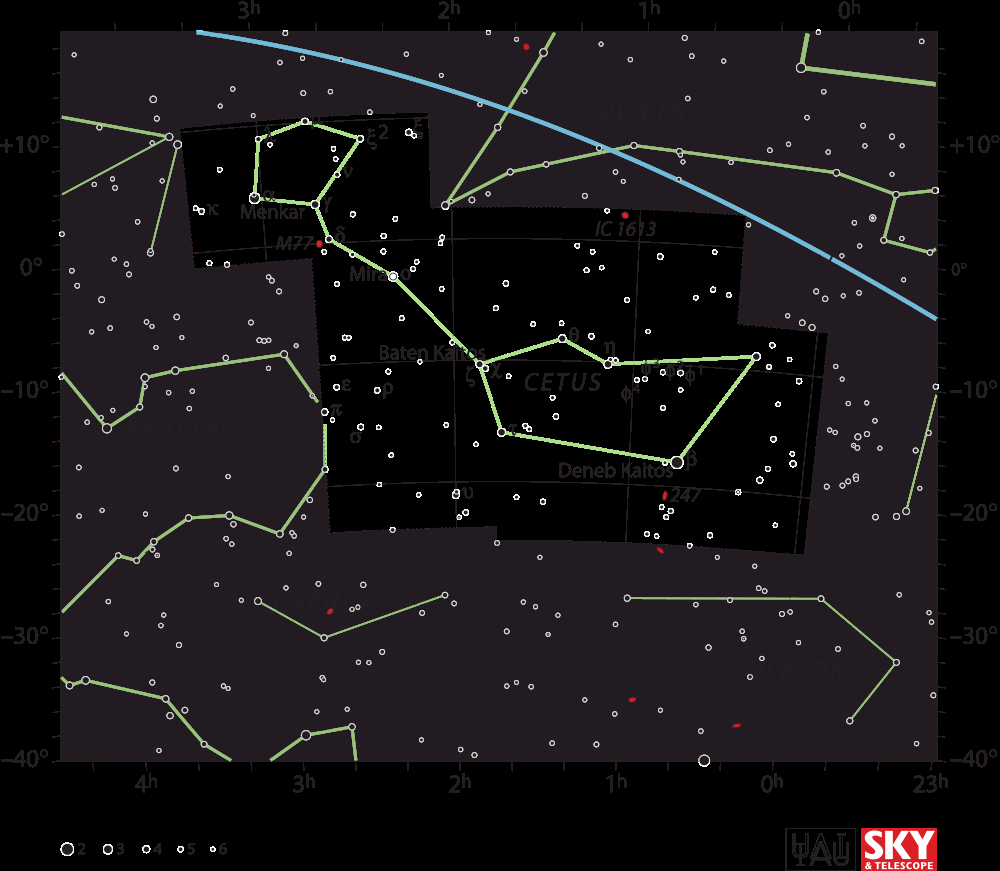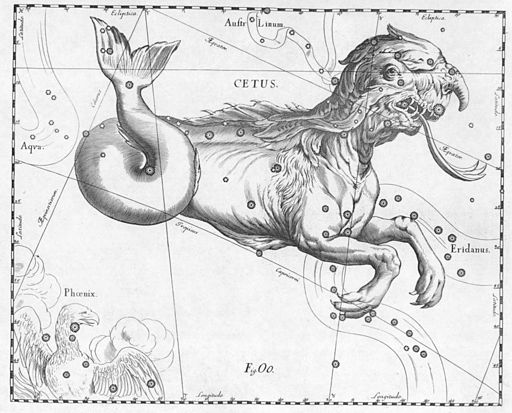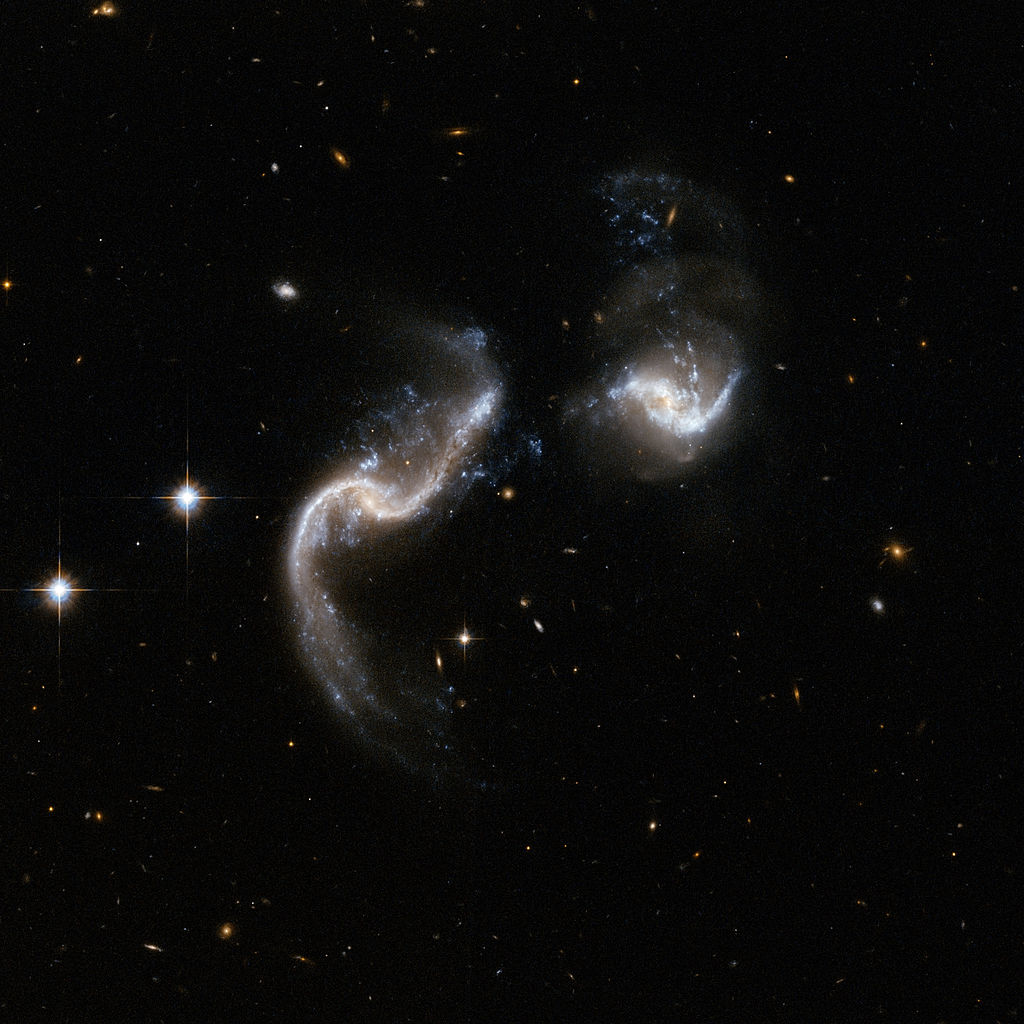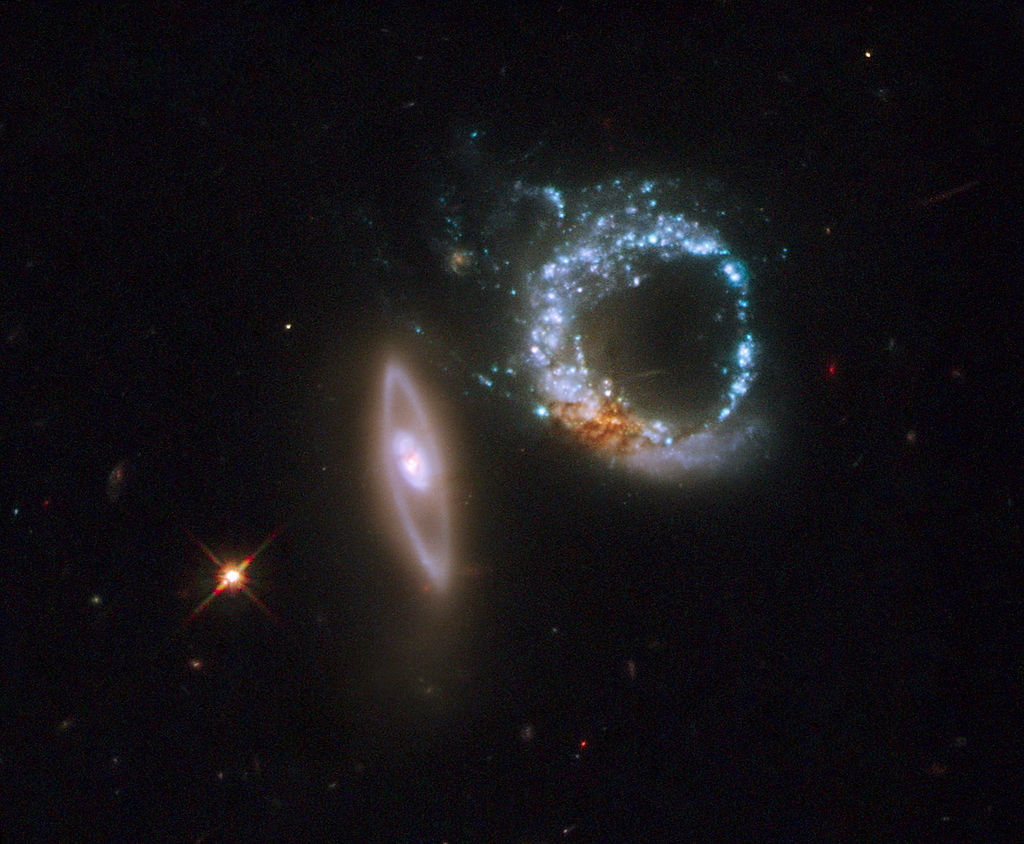
By IAU and Sky & Telescope magazine (Roger Sinnott & Rick Fienberg) [CC-BY-3.0], via Wikimedia Commons
"The Sea Monster"

By IAU and Sky & Telescope magazine (Roger Sinnott & Rick Fienberg) [CC-BY-3.0], via Wikimedia Commons
Abbreviation: Cet
Genitive: Ceti
Constellation family: Perseus
Nearest constellations: Aquarius, Aries, Eridanus,
Fornax, Pisces, Sculptor, and Taurus
Right ascension: 1.42h
Declination: -11.35°
Visible between latitudes: +70° and -90°
Square degrees: 1231
Luminary: Deneb Kaitos (Beta Ceti)
Named stars: Deneb Kaitos, Baten Kaitos, Kaffaljidhma
Notable deep sky objects: M77 (NGC 1068), NGC 246, JKCS 041
Cetus is a large constellation located near the equator. It is best seen in December.
The English name for Cetus varies, as it is sometimes written as "The Sea Monster" and other times referred to as "The Whale." Either way, Cetus is associated with the so-called "water" section of the sky, since there are a number of constellations in the area that are connected to water: Aquarius, Delphinus, Eridanus, Pisces, and Piscis Austrinus.
Cetus is the location of the first variable star to be discovered. Omicron Ceti, or Mira, was originally observed by David Fabricius in 1596. The star changes from 2.0 to 10.1 in magnitude, and when at its brightest it is one of the brightest stars in the night sky. At its dimmest it is not visible at all to the naked eye.

By Johannes Hevelius, scanned by Torsten Bronger 2003 April 4 [Public domain], via Wikimedia Commons
JKCS 041, the most distant galaxy cluster ever observed, is also located in Cetus. It is around 10.2 billion light years away from the Solar System.
In Greek mythology, Cetus is the sea monster that attacked the coast of Ethiopia for Poseidon. The Queen of Ethiopia, Cassiopeia, offended the sea god Poseidon when she boasted that she was more beautiful than his sea nymphs, called the Nereids. He retaliated by creating storms along the coast and attempting to destroy the kingdom of Ethiopia along the sea.
To stop the destruction of the coast, Cassiopeia and her husband, King Cepheus, presented their daughter Andromeda as a sacrifice to Cetus. However, before the monster could devour Andromeda, Perseus rescued her by killing Cetus.
NGC 17 (or NGC 34), a galaxy:

By NASA, ESA, the Hubble Heritage (STScI/AURA)-ESA/Hubble Collaboration, and A. Evans (University of Virginia, Charlottesville/NRAO/Stony Brook University) [Public domain], via Wikimedia Commons
Arp 256 (interacting galaxies):

By NASA, ESA, the Hubble Heritage (STScI/AURA)-ESA/Hubble Collaboration, and A. Evans (University of Virginia, Charlottesville/NRAO/Stony Brook University) [Public domain], via Wikimedia Commons
ESO 540-31 (dwarf galaxy):

By ESA/Hubble & NASA, acknowledgement: Luca Limatola [CC-BY-3.0], via ESA/Hubble
Arp 147 (interacting galaxies):

By NASA, ESA, and M. Livio (STScI) [Public domain], via Wikimedia Commons
Abell 370 (galaxy cluster):

By NASA, ESA, the Hubble SM4 ERO Team and ST-ECF [CC-BY-3.0], via Wikimedia Commons